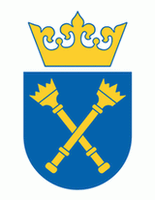Biology
Biology is the natural science that involves the study of life and living organisms, including their physical structure, chemical composition, function, development and evolution. Modern biology is a vast field, composed of many branches. Despite the broad scope and the complexity of the science, there are certain unifying concepts that consolidate it into a single, coherent field. Biology recognizes the cell as the basic unit of life, genes as the basic unit of heredity, and evolution as the engine that propels the creation of new species. Living organisms are open systems that survive by transforming energy and decreasing their local entropy to maintain a stable and vital condition defined as homeostasis. See glossary of biology.
Nature
Nature, in the broadest sense, is the natural, physical, or material world or universe. "Nature" can refer to the phenomena of the physical world, and also to life in general. The study of nature is a large, if not the only, part of science. Although humans are part of nature, human activity is often understood as a separate category from other natural phenomena.
Nature
What more felicitie can fall to creature
Than to enjoy delight with libertie,
And to be lord of all the workes of Nature,
To raine in th' aire from earth to highest skie,
To feed on flowres and weeds of glorious feature.
Edmund Spenser, The Fate of the Butterfly, line 209.
Biology
What is found in biology is mechanisms, mechanisms built with chemical components and that are often modified by other, later, mechanisms added to the earlier ones. While Occam's razor is a useful tool in the physical sciences, it can be a very dangerous implement in biology.
Francis Crick (1988) What Mad Pursuit
